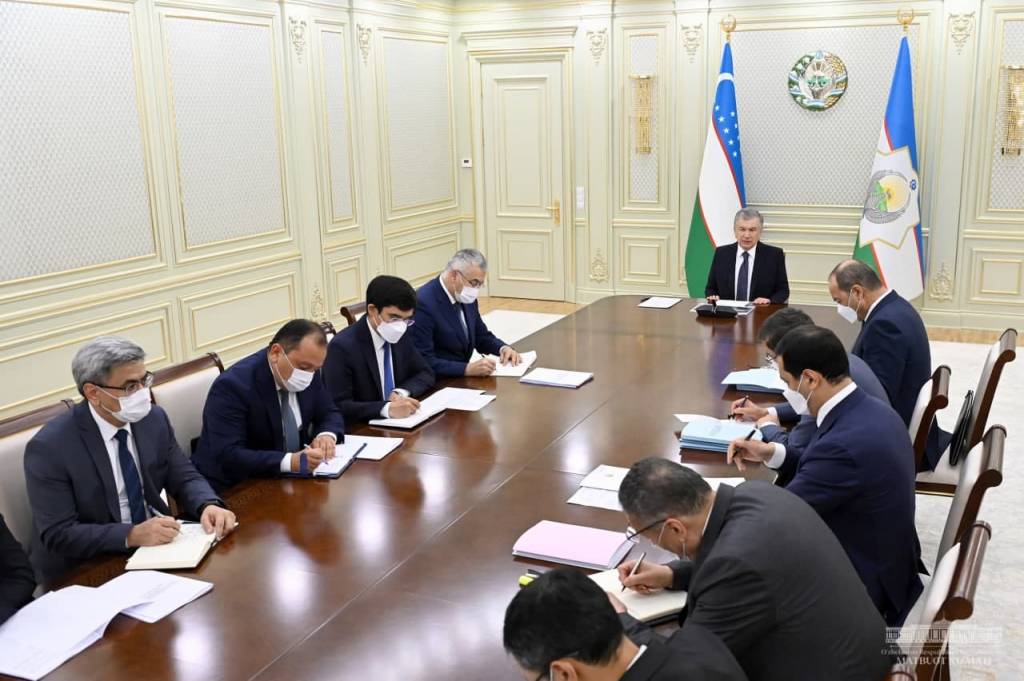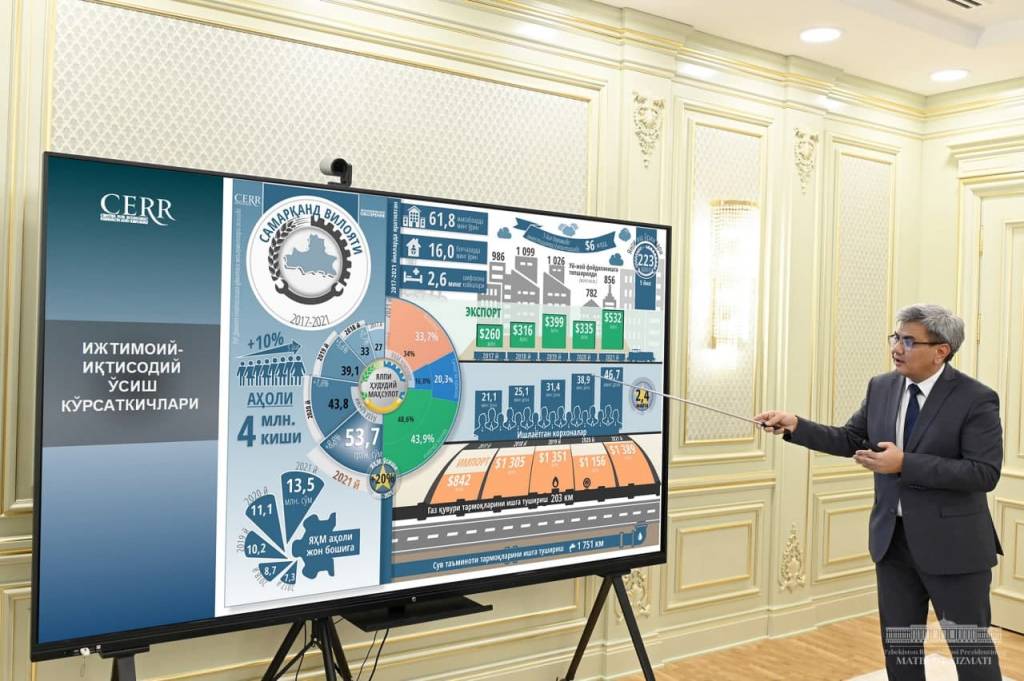President chairs a meeting on the effectiveness of reforms in the regions

On July 11, President Shavkat Mirziyoyev chaired a meeting to analyze the effectiveness of socio-economic reforms in the regions.
No sphere or industry in Uzbekistan would not be covered by the reform program.
Over the past 3 years, more than 400 decrees and resolutions have been adopted for the development of all regions, spheres and industries.
The Head of the state demands to make people feel the changes in their daily lives. Accordingly, the effect of reforms on the life of the population is being assessed.

One such comprehensive study was recently carried out in Samarkand region. Most of the respondents highly appreciated the activity of hokims’ assistants, changes in education, healthcare, access to the Internet, and public transport.
They also noted problems in some places and spheres where change is slow. In particular, there are shortcomings in such issues as the efficient use of land and water, electricity, gas and drinking water supply, allocation of land. For example, more than 15,000 appeals were received by people’s reception offices in Samarkand related to providing the population and enterprises with electricity, liquefied gas and coal.

The effectiveness of reforms in districts and cities, current issues raised by the population and entrepreneurs were comprehensively analyzed at the meeting. Proposals were made.
The need was noted for continuing administrative reforms, optimizing the number of civil servants, and properly distributing local budgets. Long-term guarantees of land rights, reduction of government intervention and improved financial services in agriculture are required. The systems of energy supply, cadastre, roads and public utilities are being improved.
The President noted the need for bringing all reforms to the grassroots level, aiming primarily at improving the welfare of the population.

Stating that the problems identified in Samarkand region are typical for other regions, the Head of the state gave instructions to the government for taking measures to study and resolve them by visiting places.
















